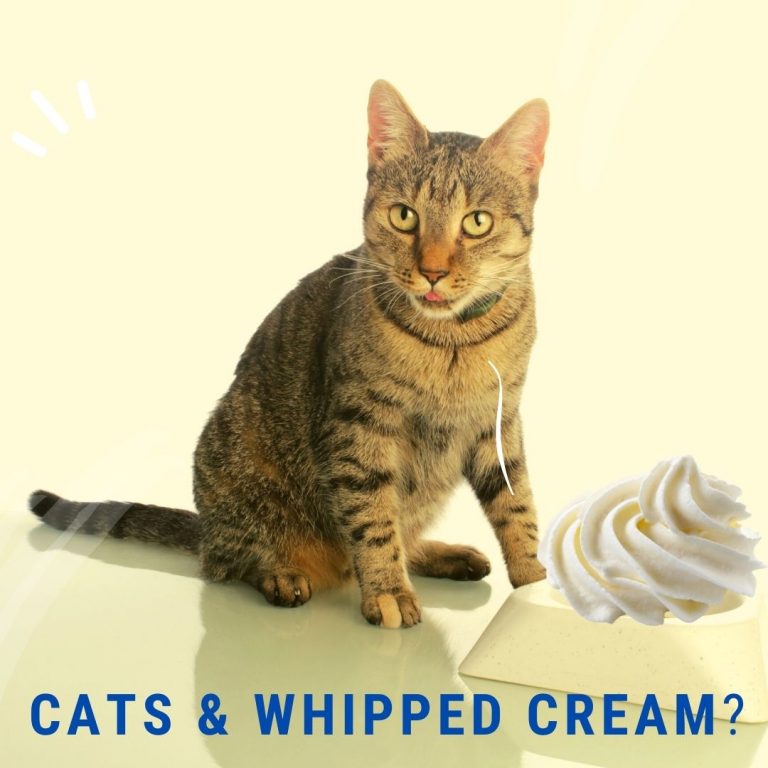Is it healthy for cats to eat whipped cream? The quick answer is that cats cannot consume whipped cream. While none of the components needed to make whipped cream are intrinsically poisonous to cats, it is unless a harmful food that stomach issues to discover why whipped cream is unhealthy for cats.
Whipped cream is a very versatile component. It goes well with virtually anything. It is one of life’s few pleasures, and it brightens happy occasions such as birthdays, Valentine’s Day, or any other celebration. We wish to share these special joyous moments with our loved ones, including our kitty companions.
But when our cats dive into a pile of whipped cream on a chocolate cake at a birthday celebration, we get concerned, not because the cat wrecked the cake, but because whipped cream is unhealthy for it. What about the cats?, can cats have whipped cream? And, of course, if it’s a chocolate cake, we panic since chocolate is deadly to cats.
Is it okay for cats to eat whipped cream?
Whipped cream is not suitable for cats since it contains harmful elements. It is full of dairy products and has many sugar and vanilla extracts. All of these compounds are hazardous to cats and can cause stomach issues.
Is whipped cream harmful to cats?
Here is the answer for, can cats have whipped cream? Yes, whipped cream is toxic to cats for the following reasons: To initiate with, vast cats are lactose intolerant like another allergy. Lactose intolerance can cause numerous difficulties, including upset stomach and diarrhea since the digestive system does not process dairy products. If cats ingest dairy products, they will endure pain and discomfort.
Lactose intolerance affects both people and cats. Therefore it’s better to avoid dairy products and find alternatives. Lactose is a sugar in dairy products such as milk, cheese, butter, and whipped cream. Lactose intolerance is the inability of a cat to absorb lactose sugar in the same manner as people who are not lactose intolerant do. It’s crucial to remember that not all cats are lactose intolerant. However, because the vast cats are lactose intolerant, it is prudent to use caution.
Dairy products can go undigested in cats’ stomachs, producing fermentation and gas generation. Due to the extra gas, the cat will have excessive gas and an upset stomach. Lactose is an unprocessed sugar that enables water into the intestines of cats, causing diarrhea. Even if your cat is not lactose intolerant, several extra ingredients in whipped cream may damage their health. The cream has far more fat than regular milk is detrimental to the cat’s health. As a result, whipped cream is low in nutritional value for cats.
You can find sugar in whipped cream, which is poisonous to cats. Sugar is not a natural component of a cat’s diet. Hence it will harm their health. Sugar, like lactose, causes nausea and vomiting in some people. Sugar can also lead to dental issues and diabetes in cats. Corn syrup includes in most types of whipped cream, and it operates in cats in the same way as sugar does. Corn syrup can induce blood sugar changes is harmful to diabetic cats. You can see artificial sweeteners, such as xylitol, in various whipped creams, but these can cause blood sugar changes in cats.
Most whipped creams, uniquely canned kinds, contain nitrous oxide. Laughing gas, often known as nitrous oxide, is a common anesthetic used in dentistry clinics. Nitric oxide aids in the removal of whipped cream from cans, and because cats have smaller bodies, the consequences are likely to be more severe. Note that whipped cream can cause cats to puff out. If a cat is a full stomach, it will not take its typical nutritional diet. If cats do not obtain enough vital nutrients in their usual diet, they will develop a deficit. As a result, it is best to forego the whipped cream and allow cats to return to their regular diet.
Why do cats like whipped cream?
So, if the kitten’s gut biome understands it’s harmful to them, why is your cat nagging you for whipped cream when you’re filling your ice cream? Vets aren’t sure, but they believe it has to do with the fat level in whipped cream. Cats get their energy from protein and fat since they eat meat. However, the macronutrient breakdown in their food is also vital in sustaining digestive health. Your cat’s diet should only include roughly 3 t of fat and the remainder of the protein, with no carbs.
Another reason cats enjoy eating whipped cream is that you have it. You’ve seen your cat do it when you walk into the kitchen. They’re walking around your feet, hoping to catch your attention and offer them a surprise. Cats are naturally curious, and if they observe you eating something, they assume it must be good. I’m on the counter to examine as soon as you set it down and turn your back. If you’re creating whipped cream, put it in the fridge rather than leaving it out on the counter.
What happens when cats consume whipped cream?
If a cat eats a little bit of whipped cream, it will have more gas than usual for many hours, but it will most likely be alright after that. Cats are astute pets. Don’t be alarmed if your cat creeps up to the counter for a few sips of whipped cream. Your cat will most likely have more gas than usual for many hours, but she should be alright after that. If you know your cat is lactose intolerant, be prepared to vomit or have diarrhea as it enters the stomach. Even if your cat does not appear to be lactose intolerant, feeding her whipped cream is not a good idea. Sugar and vanilla will disturb her stomach and may cause long-term sickness.
Is it possible for cats to consume non-dairy whipped cream?
Cats cannot consume non-dairy whipped cream. It doesn’t taste any better than dairy whipped cream. Using almond milk instead of cow’s milk would, without a doubt, make it lactose-free, but it will still include vanilla essence and high sugar content, making it harmful for cats. It means that even if your cat is not lactose intolerant, you should avoid giving him whipped cream since it includes vanilla extract and high sugar content, both of which are hazardous to all cats, regardless of their lactose status.

